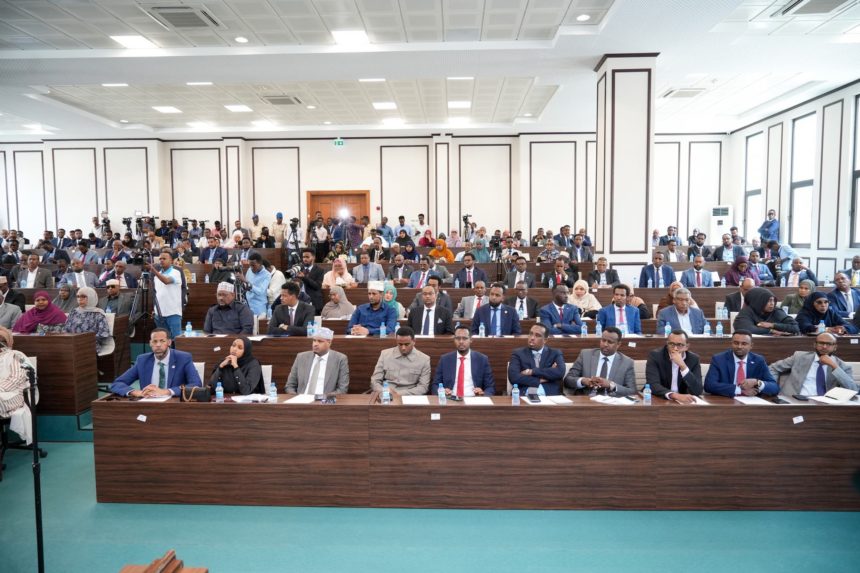Mogadishu, Somalia – Somalia’s fragile political landscape is under increasing strain following the Federal Parliament and Upper House’s approval of the Independent Electoral and Boundaries Commission. The decision, made during a joint session on Wednesday, has sparked widespread backlash from former leaders, presidential hopefuls, and representatives of federal member states, who warn that the move threatens to erode trust in the country’s already contentious election process.
Federal MP Hassan Abdi Ismail, speaking with palpable frustration, accused the government of sidelining essential voices in its selection of electoral commission members.
“Representatives for Puntland, Jubbaland, and SSC-Khaatumo were chosen as if they were plucked straight from Bakara Market,” he remarked, referencing the bustling commercial hub in Mogadishu to underscore the perceived lack of legitimacy in the appointments.
For many, this crisis cuts deeper than procedural disputes. Critics allege that President Hassan Sheikh Mohamud has stacked the commission with loyalists, fueling fears that the electoral process is being engineered to concentrate power rather than foster fair competition. These allegations, paired with accusations of military involvement to suppress dissent in Jubaland, paint a troubling picture of escalating political tensions.
MP Hassan Abdi voiced grave concerns about the Federal Government’s actions in Jubaland, accusing it of using military force to destabilize the region and undermine President Ahmed Madobe’s leadership. “This isn’t just about politics; it’s about the future of our country and the fragility of its democratic institutions,” he said, urging for restraint and dialogue.
Many fear that unresolved tensions could spiral into further instability, jeopardizing not only the upcoming elections but also the nation’s path to recovery and peace.As the political impasse deepens, calls for compromise and inclusivity grow louder. Regional leaders and international allies are urging Somali officials to prioritize the nation’s collective future over individual ambitions.


Leave a Reply